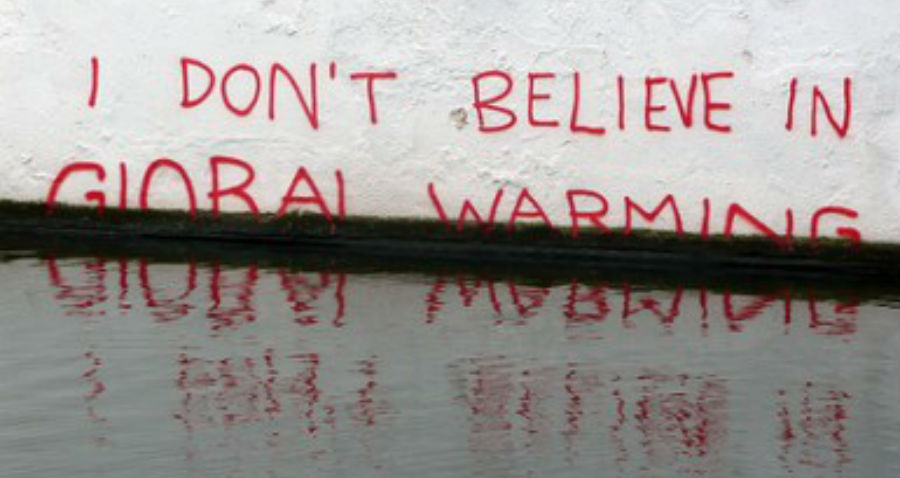
Is climate change denial a crime?
A Norwegian ethicist says Yes.

Free speech is one of the most treasured rights in Western democracy. However, ethicists are constantly making exceptions for points of view which they regards as particularly destructive and evil. In the latest issue of the Nordic Journal of Applied Ethics, Trygve Lavik, a philosopher at the University of Bergen, argues that climate change denial is a crime and that it should be made illegal. He does not specify what penal sanctions should be imposed.
Climate denialism is not beneficial because its main goal is to produce doubt, and not truth. Climate denialism is not sincerely meant, which is a necessary condition for Mill to accept utterances. Climate denialists bring harm, by blocking necessary action on climate change. Primarily they harm future generations and people in developing countries.
Lavik attempts to distinguish between scepticism and denialism. Relying upon renowned sceptic Michael Shermer, he says that “denialism is typically driven by ideology and religious belief”. A refusal to accept the overwhelming preponderance of evidence is insincere if it masquerades as scepticism. It is plainly and simply denialism.
Lavik acknowledges that “The common view is … that free discussion is always a good thing.” Even though this comes straight from John Stuart Mill, the patron saint of utilitarianism, Lavik denies it. Mill did not foresee that modern psychology would discover that people are often unmoved by debate; they stick to their guns.
These findings challenge Mill’s utilitarian justification of the liberty principle. If free discussion does not work, if more debate does not lead to more truth, then free speech is not useful.
Why shouldn’t lots of other debates be silenced, then? Only because they are not so important. In Lavik’s eyes, climate change denialism is the most dangerous of all ideas because it poses an existential threat to humanity. It is far worse than Holocaust denialism (which is already banned in several European countries) because it affects future well-being.
Lavik’s arguments seem to have a certain relevance to countries like Canada, where euthanasia is being rolled out. It would be easy to construct an argument for banning all debate about legal euthanasia on the grounds of public safety. If euthanasia is a positive benefit, and if debate discourages people from taking advantage of it, surely debate must be banned. However, at the moment, only doctors’ right to conscientious objection is being debated.
https://www.bioedge.org/images/2008images/TH_global-warming-flood.jpg
Creative commons
https://www.bioedge.org/images/2008images/FB_global-warming-flood.jpg
climate change
conscientious objection
free speech
- How long can you put off seeing the doctor because of lockdowns? - December 3, 2021
- House of Lords debates assisted suicide—again - October 28, 2021
- Spanish government tries to restrict conscientious objection - October 28, 2021
